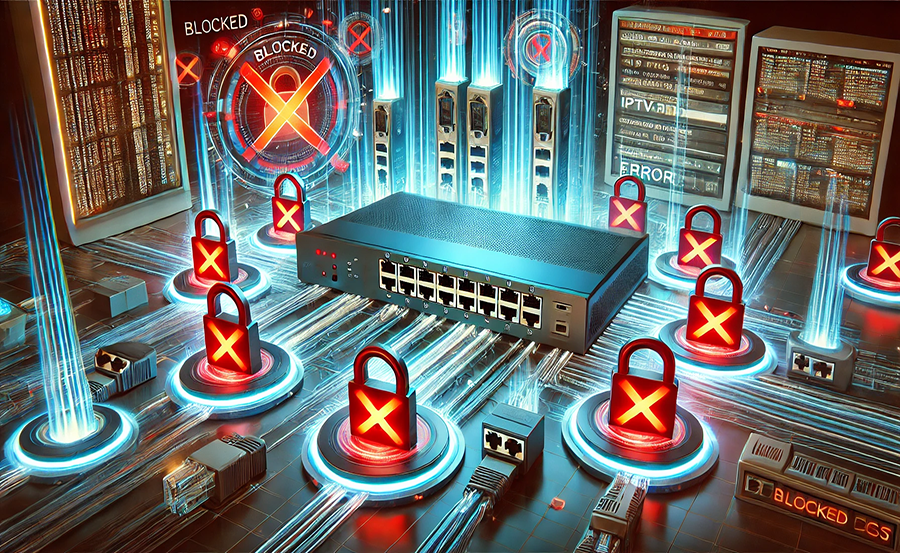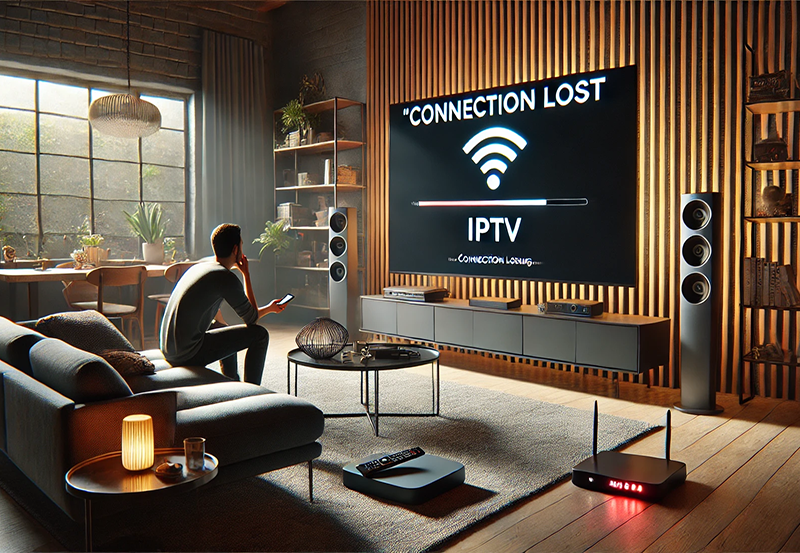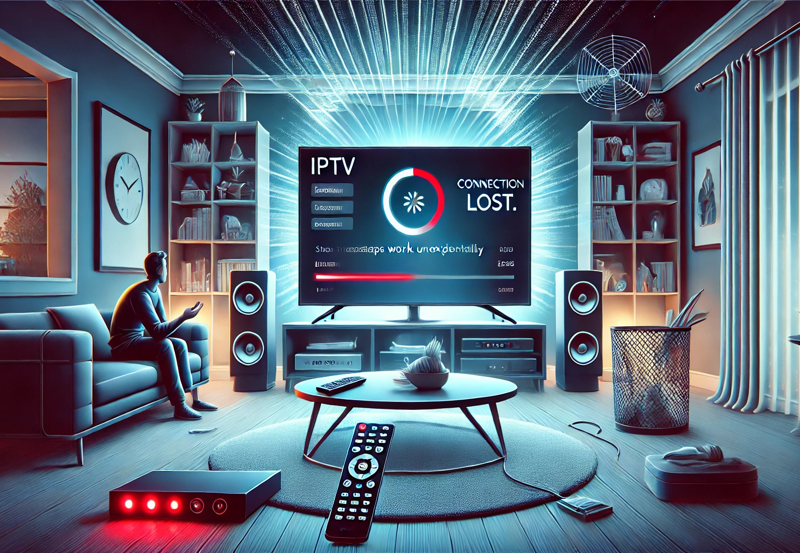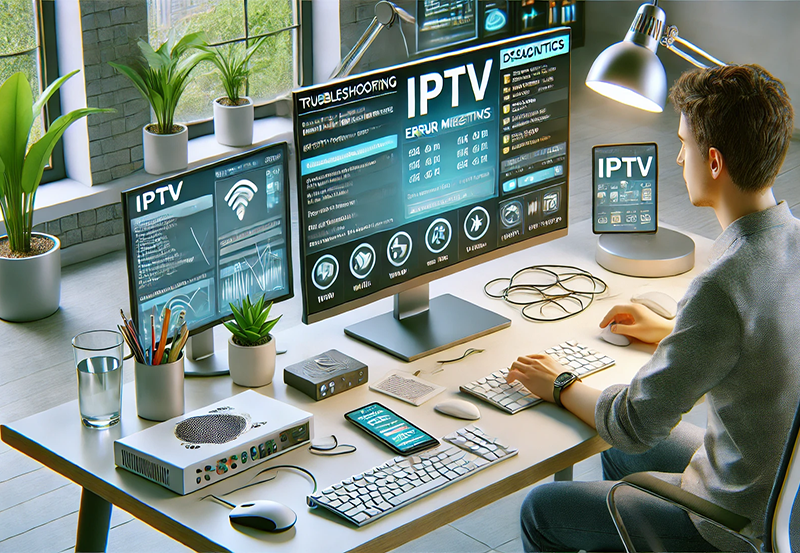Understanding the Impact of Firewalls on IPTV Ports and Effective Management Strategies
Today’s digital world is buzzing with new-age media consumption that brings TV to screens not just big, but small and smart – yes, IPTV (Internet Protocol Television). While IPTV offers unparalleled flexibility and choice, there lurks an unseen challenge: firewalls affecting IPTV ports. Let’s unravel this topic to see how you can have your IPTV service for firestick run smoothly, enjoy your IPTV subscription plans, and maximize your streaming delight without any hitch.
The Core of IPTV: What It Really Means
The Emergence of IPTV
The evolution of TV has seen a transition from cable to internet-based systems, revolutionizing the traditional viewing experience. IPTV represents this leap, using the internet to deliver television content, bypassing traditional formats like satellite or cable, and enabling viewers to watch videos via streaming. The boom of IPTV service for firestick showcases just how popular this service has become.
So, why the fuss about IPTV? It’s about user control, choice, and flexibility over what you watch, whenever you want. However, the intricate undercurrent comprising protocols and ports sets IPTV apart in terms of management complexity.
Pro Tip:
Get high-quality streams with Affordable IPTV services for a world-class viewing experience.
How IPTV Works
IPTV operates using a complex set of codes and data packets that facilitate the transfer of audio and video streams. This data travels via IPTV ports which function as digital gateways, allowing content to journey from provider to user. IPTV subscription plans leverage these pathways to deliver curated content to your screen, ensuring a personalized viewing experience.
In a nutshell, understanding IPTV’s workings involves grasping how IP networks manage the seamless flow of content, a concept not entirely devoid of complications, especially when elements like firewalls come into play.
Firewalls: The Gatekeepers of Networks
Understanding Firewalls
Firewalls act like guardians, protecting a network by regulating incoming and outgoing traffic based on predetermined security protocols. Ensuring a safe passage for data, they are crucial for preventing unauthorized access. While their protective layer helps in creating secure networks, firewalls potentially hinder smooth IPTV function by interfering with certain port activities.
Much like a vigilant night watchman, firewalls oversee what gets in and out of your network. And while this is essential for security, for IPTV users primarily, they may sometimes block content that’s legitimately part of your subscription plan or streaming delight.
Firewall Types and Configurations
There are hardware and software firewalls, each with unique installation and configuration methods. Hardware firewalls serve as physical units, often located between your network and the Internet, while software firewalls reside on your computer or router.
Every firewall comes with its own set of strengths. Hardware firewalls provide a suite of protective measures on a broader network level, while software firewalls offer detailed control over individual applications and data flow. Each configuration affects not only security but also how effectively your IPTV system operates.
Firewalls and IPTV: Exploring the Connection
The Interplay Between Firewalls and IPTV Ports
The relationship between firewalls and IPTV ports can be looked at as somewhat of a balancing act. A firewall’s fundamental duty, to filter data for security purposes, executes through examining and potentially blocking ports that IPTV operates on. This can lead to interruptions in your streaming experience or even prevent content access altogether.
IPTV relies specifically on port numbers and protocols to ensure data packets containing your videos are sent smoothly. Should a firewall indiscriminately block these ports, your connection suffers. This highlights the importance of identifying correctly which ports need to remain open for IPTV streaming.
Common Issues Faced by IPTV Users Due to Firewalls
Streaming interruptions, decreased connection speeds, or even complete denial of service are not uncommon complaints among IPTV users. Frequently, these issues trace back to firewalls treating IPTV port activity as suspicious, often sending these ports to a blocked status, resulting in unanticipated disruptions.
In such scenarios, navigating the intricacies of your firewall’s settings or crafting professional strategies for management becomes indispensable to return smooth viewing experiences.
Managing Firewalls Effectively for Optimal IPTV Performance
Adjust Your Firewall Settings
For uninterrupted streaming, kicking things off with proper calibration of your firewall settings is a must. Begin by identifying and unblocking essential IPTV ports in your firewall’s traffic control settings. Consult documentation or professional guidelines to locate specific ports related to your IPTV subscription plans.
- Identify key IPTV ports for your specific provider.
- Whitelist these ports in your firewall settings.
- Regularly update to maintain efficient settings.
Understanding Port Forwarding
Port forwarding is an effective technique to direct data traffic into your firewall-protected network. By creating specific pathways through your firewall, you ensure uninterrupted data flow. Align your router’s settings in conjunction with your firewall to execute this strategy seamlessly.
Key steps include accessing your router’s settings, locating port forwarding sections, and making sure that the correct ports for your IPTV service are neither blocked nor misconfigured.
Additional Tips to Maximize Your Streaming Delight
Ensuring your Device Compatibility
Using compatible devices minimizes complications. The IPTV service for firestick stands as a popular choice to ease this process, offering compatibility and ease of management through streamlined apps directly available on the Amazon platform.
Leveraging devices that directly support your subscription plans translates to enhanced functionality, meaning fewer potential technical barriers caused by incompatibility issues.
Constant Upgrade and Monitoring
Maintaining an eagle eye on software updates is vital. Regular updates not only offer new features but also patch vulnerabilities that could impact both streaming performance and security. Keep your firewall features updated, ensuring they freshly contain, and adequately manage, IPTV traffic without unjust blocks.
Ensuring that your IPTV subscription plans always reference the latest player versions and apps is a decisive step in upholding consistent performance.
Engaging with Professional Help: When to Seek Assistance
Understanding Limitations
Sometimes, tinkering with your configurations doesn’t achieve the desired results. Technical challenges, misconfigurations, and firewall errors can exhibit complexity beyond casual fixes. Recognizing when personal capacity reaches its limit is paramount for resolution.
If you find yourself persistently troubleshooting without tangible outcomes, it might be time to consult with professional IT support to navigate your IPTV setup efficiently.
Hiring Professional Configuration Services
Ensuring optimal performance often rests in knowledgeable hands. Professional services equipped with understanding specific IPTV and firewall heuristics can alleviate persisting issues efficiently. They will open necessary ports, configure your firewall correctly, and may provide insightful techniques to streamline updates and settings.
Remember, investing in professional help not only resolves existing problems but enhances future experiences by establishing solid, technical foundations.
FAQ Section

How can firewalls affect IPTV streaming?
Firewalls potentially block essential ports used by IPTV, leading to interruptions or inability to access content. Ensuring the correct configuration of firewalls is key to maintaining smooth streaming.
What is the role of port forwarding in IPTV?
Port forwarding creates pathways through firewalls allowing seamless IPTV data flow. It is essential to configure the router and firewall settings to accommodate necessary IPTV ports.
Can I handle IPTV issues myself, or should I seek professional help?
You can initially try adjusting firewall settings and ensuring your devices are up-to-date. If issues persist, seeking professional help is advisable to troubleshoot deeper technical problems.
What’s the best device for accessing IPTV services?
Devices like the Amazon Firestick are built to support IPTV services, offering reliability and compatibility. Such devices simplify accessing IPTV subscription plans, enhancing your viewing experience.
Are continual software updates necessary for IPTV?
Yes, updates are critical for improved performance and security. Regular updates ensure that your IPTV service works efficiently and is protected against vulnerabilities.
Why might I need professional configuration services for my IPTV setup?
Professional services manage technical intricacies in firewall and IPTV settings, ensuring optimized performance and mitigating ongoing issues. Their expertise can be crucial especially when DIY fixes fall short.
Now, equipped with insights into firewall and IPTV dynamics, gear yourself to enjoy optimal viewing experiences. Make informed decisions, seek timely tech support, and let nothing stop you from enjoying your favorite shows on-demand.
NVIDIA Shield TV for Gaming: In-Depth Review





